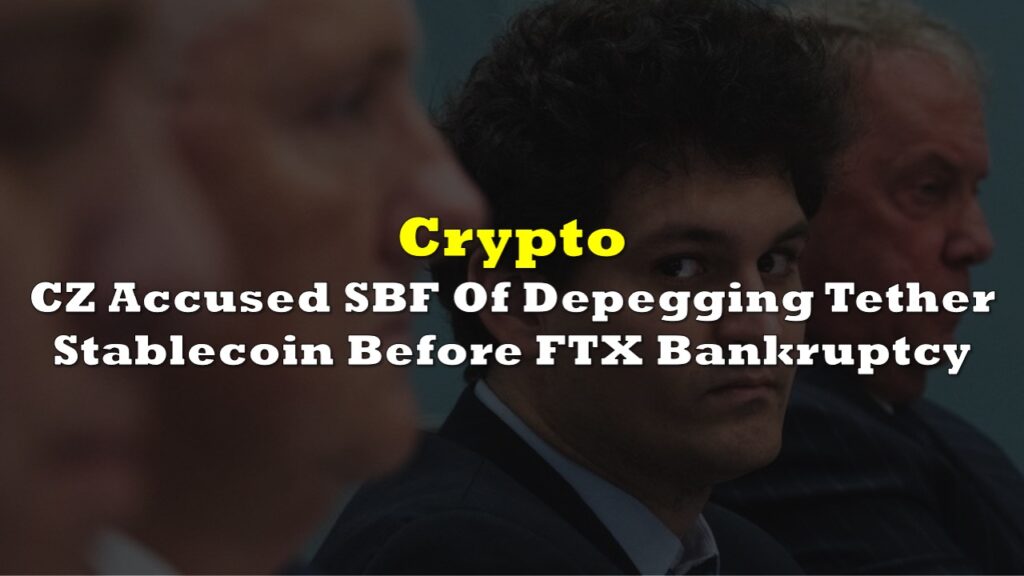Stuart Hoegner, a key figure in the cryptocurrency world and the longtime general counsel for Tether and Bitfinex, has stepped down after nearly a decade at the helm of legal operations for the controversial stablecoin issuer and its affiliated crypto exchange.
The departure, confirmed through an update to Hoegner’s X (formerly Twitter) profile and the removal of his name from company websites, marks the latest chapter in a tumultuous period for the cryptocurrency giants.

Hoegner’s resignation, while officially attributed to retirement, comes at a time of increasing regulatory pressure on Tether (USDT) and its sister company Bitfinex. Both firms have faced allegations of financial misconduct, including insufficient reserves to back their stablecoin, links to money laundering, and opaque banking practices.
Hoegner joined Bitfinex in 2014, shortly after a major hacking incident that shook confidence in the exchange. Over the years, he became a critical figure in defending Tether and Bitfinex against regulatory probes and lawsuits. However, his tenure has been marred by criticism from regulators, financial watchdogs, and cryptocurrency skeptics who questioned the firm’s claims of full USDT backing by cash reserves.
The timing of his departure raises eyebrows, coinciding with the enforcement of the EU’s Markets in Crypto-Assets regulations, which effectively ban Tether in Europe, and a possible U.S. crackdown under a new Trump administration. Tether has also paused new USDT minting for over 20 days—a rare event in its operational history.
BREAKING: Stuart Hoegner, one of Tether’s TOP executives and longtime general counsel for Tether/Bitfinex, has unexpectedly resigned after nearly a decade.
— Jacob King (@JacobKinge) January 3, 2025
He’s been scrubbed from official pages, and Michael Hilliard—co-leader of their legal team—will now step in.
This… pic.twitter.com/6wN6DBOKCY
In a statement to Protos, Tether and Bitfinex announced that Michael Hilliard, who has co-led legal operations alongside Hoegner for several years, will take over as general counsel. Hilliard faces the daunting task of steering Tether and Bitfinex through a rapidly evolving regulatory landscape.
The EU’s MiCA regulations represent just one aspect of the mounting challenges. In the United States, bipartisan calls for stricter stablecoin oversight have intensified following the collapse of several high-profile crypto projects and revelations of widespread fraud in the sector.
Hoegner’s departure is not an isolated event but part of a broader leadership shakeup. Recent months have seen Tether’s Chief Compliance Officer, Leonardo Real, and Bitfinex’s Chief Compliance Officer, Peter Warrack, also leave their roles.
Something big is happening with Tether.
— Jacob King (@JacobKinge) January 3, 2025
👋 Top exec (Stuart Hoegner) quietly quits
⏳ Tether hasn't minted anything in 20+ days
🚫 Banned in EU, 64%+ of its volume
💸 Billions sent from Exchanges to Treasury
❌ Refusing to audit $137+ billion in tokens
🏛️ Under investigation for… pic.twitter.com/3MiahASzSo
Hoegner’s exit also coincides with heightened concerns over Tether’s ability to maintain its $1 peg amid questions about its reserves. Critics have long pointed to the lack of transparency surrounding Tether’s financial backing, with some alleging that its reserves include commercial paper of dubious quality or insufficient liquidity.
The situation is further complicated by geopolitical and regulatory developments. Tether’s recent $775 million investment in video-sharing platform Rumble (NASDAQ: RUM), while framed as a strategic move, has drawn criticism for its timing and financial opacity. Analysts have suggested the investment may be a means of creating liquidity for Tether amid challenges in accessing traditional banking services.
Adding to the intrigue is Tether’s unexpected role in a high-profile embezzlement case involving Shan Hanes, a former Kansas banker sentenced to 24 years in prison for siphoning $47 million into a cryptocurrency scam. The FBI recently recovered $8.3 million of the stolen funds from a Tether account in the Cayman Islands. While the recovery provided relief to the victims, it underscored the regulatory challenges posed by Tether’s operations in jurisdictions with lenient financial oversight.
Information for this briefing was found via Crypto Times and the sources mentioned. The author has no securities or affiliations related to this organization. Not a recommendation to buy or sell. Always do additional research and consult a professional before purchasing a security. The author holds no licenses.









